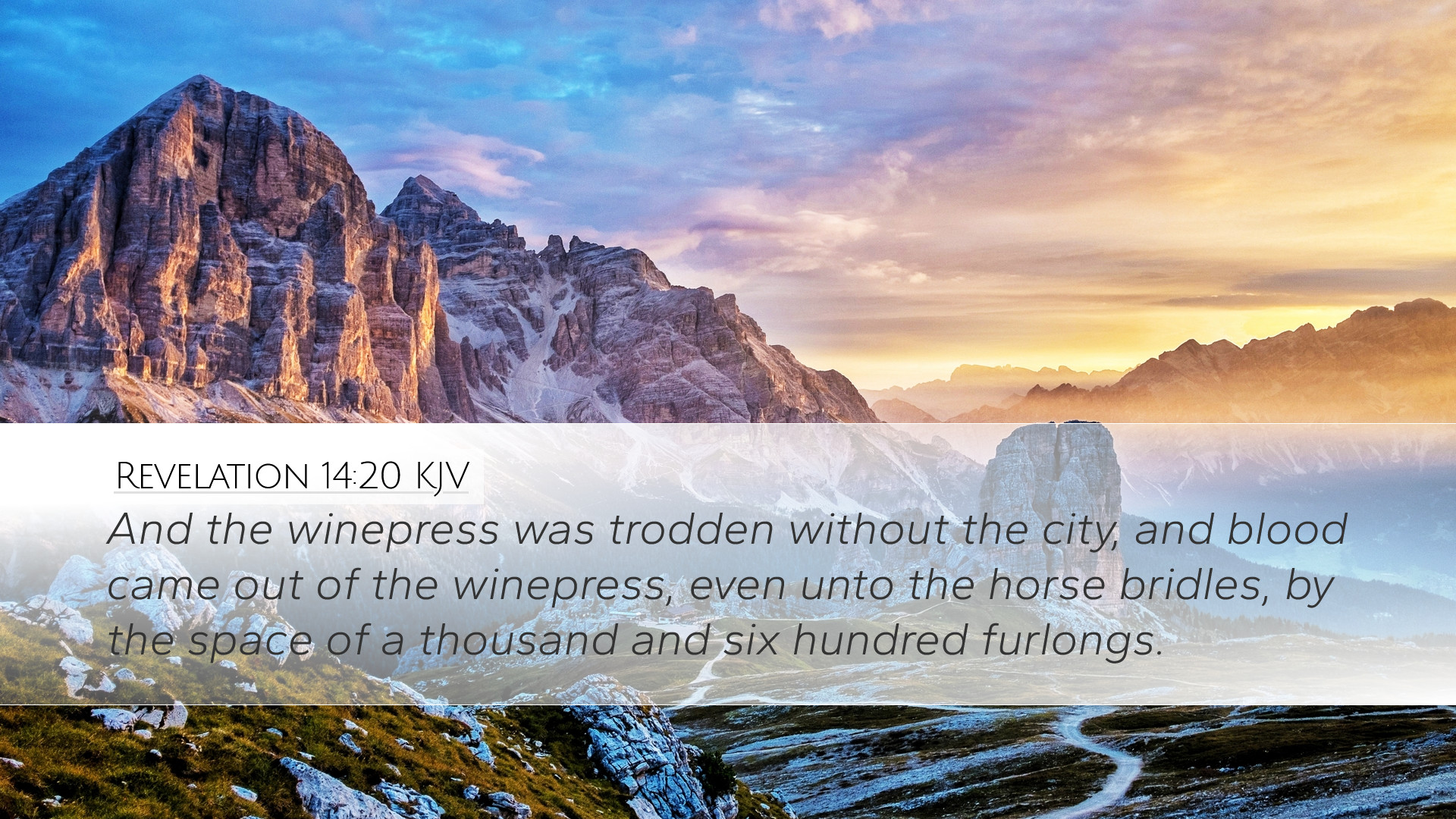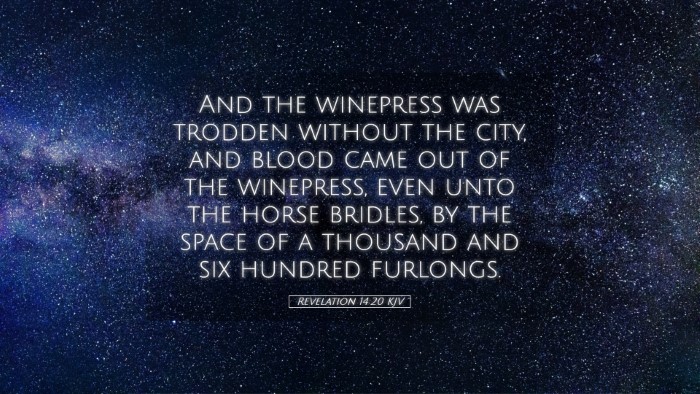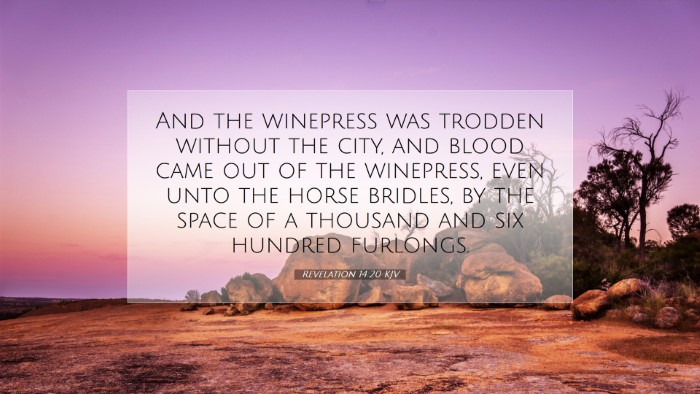Commentary on Revelation 14:20
This verse marks a pivotal moment in the Book of Revelation, serving as a representation of divine judgment and the ultimate end of the wicked.
Verse Text
Revelation 14:20 (KJV): "And the winepress was trodden without the city, and blood came out of the winepress, even unto the horses’ bridles, by the space of a thousand and six hundred furlongs."
General Overview
In this verse, John employs vivid imagery to encapsulate the severity of God's judgment on the earth. The metaphor of a winepress symbolizes the process of divine wrath being poured out on the unrepentant. Public domain commentaries from figures such as Matthew Henry, Albert Barnes, and Adam Clarke provide profound insights into the implications of this passage.
Symbolism of the Winepress
The winepress is a significant symbol within biblical literature, particularly used in prophetic contexts. It signifies the process of judgment where the wicked are subjected to divine retribution.
- Matthew Henry: He interprets the winepress as a place of wrath, where the grapes represent the sinners whose blood is shed in judgment.
- Albert Barnes: Barnes emphasizes that the treading of the winepress reflects the violent and total nature of God's judgment, illustrating His power over sin.
- Adam Clarke: Clarke notes that the space of "a thousand and six hundred furlongs" suggests a vast scope of judgment, indicating that God's wrath extends across the earth.
Judgment Imagery
The imagery of blood flowing "even unto the horses’ bridles" conveys a stark picture of the severity and totality of judgment. This vivid illustration underscores the consequences of sin and rebellion against God.
- Matthew Henry: He suggests that the blood symbolizes the ultimate fate of the wicked, leading to their demise and serving as a warning to others.
- Albert Barnes: He elaborates that the mention of blood can evoke a sense of horror, emphasizing the catastrophic effects of ignoring God's commands.
- Adam Clarke: Clarke interprets the height of the blood as indicative of the overwhelming nature of God’s wrath, which surpasses human understanding.
Theological Implications
Revelation 14:20 carries significant theological weight, addressing the righteousness of God's judgment and the final destiny of the wicked.
- Divine Justice: The imagery emphasizes that God's judgments are just, signifying that the wicked will face consequences for their actions.
- God's Sovereignty: This verse affirms God's sovereignty over history and the unfolding of His divine plan, showcasing His ultimate authority as judge.
- Call to Repentance: As the imagery evokes fear, it serves as a divine warning to prompt repentance among the readers, addressing the urgency of moral integrity.
Contextual Analysis
Understanding the context of Revelation 14 adds depth to this verse.
- Context of Judgment: Revelation 14 serves as a precursor to the final judgments described throughout the Book of Revelation.
- Connection to Previous Verses: This verse can be linked to the earlier passages that describe the harvest of the earth and the fate of the righteous versus the unrighteous.
Conclusion
Revelation 14:20 serves as a powerful encapsulation of the themes of judgment, justice, and divine sovereignty. The blood imagery and the winepress symbolize the fate of the wicked while simultaneously calling individuals to reflect on their spiritual state.
The insights from Matthew Henry, Albert Barnes, and Adam Clarke provide a rich tapestry of interpretation, enhancing our understanding of the grave consequences of sin and the holiness of God. As future leaders, scholars, and theologians delve into this passage, they are reminded of the serious nature of God's judgments and the absolute importance of repentance and faithfulness to God’s commandments.


